Baby Clifford & Baby Snoopy

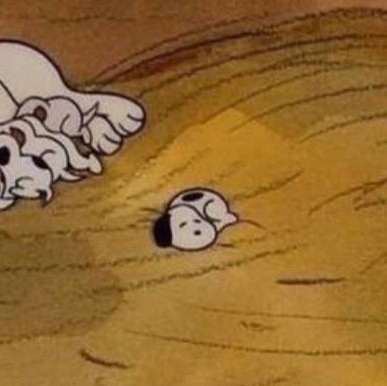
Baby Clifford & baby Snoopy
More Posts from Strudelcreme and Others
fanfiction: fugue in a minor
Fandom: Hetalia Pairing: SpAus (Austria/Spain) Characters: Austria, Spain, Belgium, Augsburg, Swabia, Bavaria, Holy Roman Empire, Saxony Rating: E
Summary: 23 October 1520. Spain and Austria get married. The Imperial Estates and their guests while away the evening with music and courtly dances, celebrating both the union and Charles V’s crowning as “elected Roman emperor” in Aachen Cathedral. But what is expected of the newlyweds? And what is in for them on their wedding night?
This story has been written for Hetabang 2020. It’s a collaboration project with @aph–lietuva who was my Beta and who created wonderful art for this story that you can find on her tumblr. With her permission, I also inserted her art into this tumblr post. It’s been a pleasure working with you! ❤︎
Also available on AO3 (see the link in my profile).
Keep reading









“ [g] o have some f[u]n whi[L]e you still c[a]n make your soul [g]low “
- from insta but I forgot the @
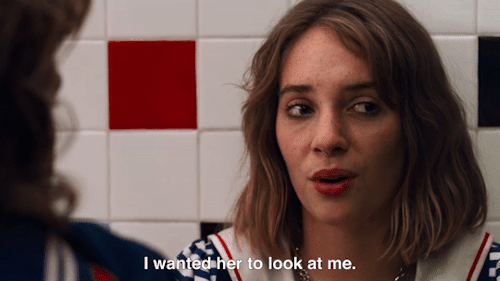

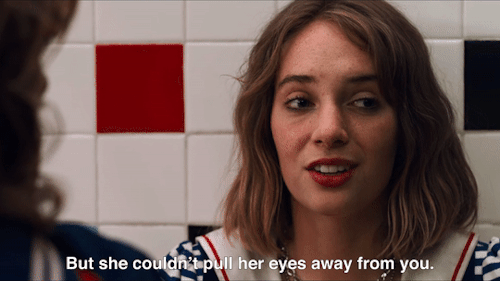
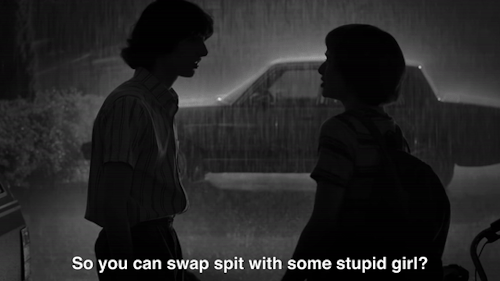

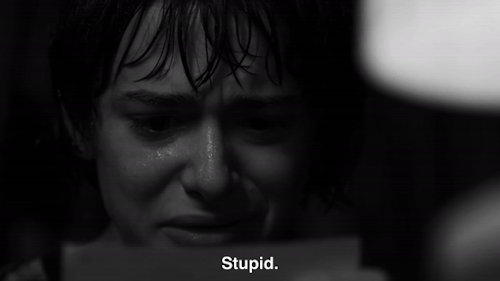


Robin Buckley / Will Byers parallels




‘I watched empires rise and fall long before the first of your kingdoms crawled out of the dirt!’
- A.D. 1842 - @historical-hetalia-week day five…
The Price of Fun.
(Gerold Hirschberg x Female! Reader)
For the lovely @strudelcreme, really hope you enjoy ❤️💛


"You two gotta be careful out there. Don't know when or where those Krauts might be hanging about." Aldo warned for the upteenth time. (Y/n) had to suppress a eye roll while Gerold only nodded. The mission wasn't even that big of a deal, it was only Aldo wanting to make sure that Paris had... viable escape routes. He couldn't have out one of his best on a more boring mission. "Do not engage if you see anything, do I make myself clear?" Aldo quizzed.
"Yes sir!"
"(L/N)?"
"Yes sir." She responded, less enthusiastically than her man. Once everything had been briefed once more, (Y/n) and Gerold were left near the outskirts of the city. " Alright, I'm not going to do this." Gerold said, catching his girl by surprise. "What do you mean?" She asked. (Y/n) knew that her boyfriend had a knack for causing trouble, especially back home. She didn't take him serious when he said he was joining the army. "I heard there's a movie playing at the cinema. You wanna go watch it?" He asked.
"You can't be serious."
"Come on, I haven't taken you on a date since we got here." Gerold reasoned. (Y/n) laughed softly, feeling a blush creep up on her. The idea of a cinema did sound appealing, it definitely beat having to do this boring mission. "Fine, let's go. How do we get the tickets?" (Y/n) asked, although she knew that Georld had some scheme already planned. " Who said anything about tickets?" Gerold smiled. The two made their way toward the cinema, (Y/n) making an effort to conseal them from any Police. They snuck into the cinema, taking the seats the top of the room. The movie they were watching was "Gilda", Georld's favorite movie. Hell, when (Y/n) and he first met, Gerold said she looked like Rita Hayworth.
"Haven't you seen this movie like a thousand times?" (Y/n) asked with a grin. Gerold smiled back. "I know the entire thing by heart now. " He said proudly. The movie got to the bit that could literally make any man swoon. That gorgeous hair flip, combined with that beautiful voice, it even made (Y/n) blush. Once the movie was over, the two decided that it was time to head back. They exited the same way they came in, and it was then that they noticed that it has gotten dark. They shared a look. A look that conveyed exactly what the two parties were feeling. "We are so screwed." (Y/n) said.
The walk back was filled with awkward laughs and Gerold trying to sneak a kiss here and there. "You know, when we get back home, I'm gonna marry." He said. "You serious?" (Y/n) asked, quite surprised by his confession. She had wanted to be married and it mad her extrinsically happy to know that he wanted to as well. The camp was quiet. "Phew, we are good to-"
"I wouldn't say so, Hirschberg." Said Aldo, emerging from behind them. (Y/n) yelped, jumping slightly and Gerold swore. " Now...why don't you two tell us where the fuck you've been?" Aldo asked, his voice dangerously low. They have never seen him this mad. Turns out, the others were awake as well. They all looked just as angry. "We umm...we umm...we were at a movie." (Y/n) sighed with honesty. It took a moment for Aldo to process what she said and Gerold looked like he was going to shit himself. "So your telling me that you blew off an important mission to watch a fucking me? Well fuck me, we should all do the same thing. It ain't as if we are in the middle of fucking war!" Aldo swore. If you have ever heard a man from the middle of goddamn Tennessee swear, you know you were in trouble.
"Sir, we were only trying to-"
"I don't wanna hear it, Hirschberg. You two dumbasses might have gotten killed. Did you have any consideration for any of us?" Aldo asked, as if he was expecting an answer. The duo stayed quiet and Aldo scoffed. "You're lucky I sent Wicki and Stiglitz to do your job for you." He sighed. "You two ever pull this shit again, you'll be running to the Krauts to save your asses." Aldo seethed and a cacophony of agreements followed suit. The situation died down after, and the others returned to sleep. (Y/n) were left to think about their actions. "It was a good movie though." Gerold said. (Y/n) chuckled. "Be quiet, shortie." She responded. A pout made its way to his face.
A hand came down on both their shoulders, and they were pulled into an almost bear-like hug. "Aldo, you're crushing me, man!" (Y/n) stated, dropping all formality when it was just them. "Shut up." Aldo responded simply and (Y/n) laughed. " You two ever pull something like that again, I swear to God I will kill you both." Aldo stated, his tone holding promise. Both (Y/n) and Gerold returned the gesture, them staying in the hug for a good minute. Once Aldo finally pulled away, he smiled. "I promised I'd get you kids back home. So do me a favor and don't make it harder for me." He chuckled.
"We won't...for now."
"(L/n)."
"I'm kidding."
Aldo laughed, before bidding them a goodnight. Gerold and her laid down, when he turned to face her. "You weren't really kidding, were you?"
"Nope."
@strudelcreme @sergeant-donny-donowitz @jiejie-eonni-onee-sama @empress-writes @fandoms-are-my-friends-1321 @struggling-bee @jokersqueenofchaos
babygirlify a man today by tucking loose hair behind his ear
A small mishap.
(Gerold Hirschberg x Female!Reader)
For the lovely @strudelcreme , hope you enjoy 💛💛 and I am sorry if it sucks. ❤️ There are no gifs for this boy 🤣


"You have got to be kidding me."
"Right back at ya, shortie."
Gerold looked over to (Y/n), with the deadliest glare he could muster. His relationship with the Basterds poison master was…strained to say the least. They rarely saw eye to eye, which made the current situation quiet an inconvenience for them. The situation in question was that, there was only one sleeping bag left. (Y/n) groaned aloud. Why was it that it was always here stuck in these situations? Was this some sort of godly practical joke? A hand clapped on both of their backs.
"So, you two got stuck with the last one. You gonna share?" Donny asked with a grin. Gerold cursed himself for sharing some information with the Staff Sergeant, and by the shit eating grin on his face, he knew what Donny was trying to say. "Nah, I'd rather sleep on the ground." Gerold immediately answered, earning a chuckle from Donny and an offended look from (Y/n). "Oh come on, Hirschberg. It's only one night, maybe then you'll finally get some-" Donny began, before Hirschberg hit him in the gut with the back of his gun. (Y/n) shot him a confused look. "What the hell was he on about?"
"Nothin', just the whole Donny nonsense."
Gerold walked over to the sleeping bag. It looked good, for being a used one. Comfortable, too. Gerold, however, laid next to it. "You can have it." He said simply. Hirschberg wasn't the type to let anything go, so this surprised (Y/n). Taking small strides, she got into the bag and motioned him to come over. "It's going to be cold tonight, and you need something to cover up." (Y/n) reasoned. Gerold stood silently for a moment. He could already feel the brush of cold against his exposed skin. But the thought of being so close to her was far more terrifying. Nevertheless, he moved into the bag with her, muttering a small thanks in the process. " You really didn't have to." Gerold said. (Y/n) chuckled softly, "Like I hate you too, shortie but I am not gonna let you freeze to death."
Gerold smiled, suppressing a laugh. "You ain't half bad, (L/n)." He commented. "You ain't bad yourself, Hirschberg." A comfortable silence came over. It was then that both (Y/n) and Gerold heard the whoops and the yeahs! of the others. Gerold groaned loudly. "The hell are they hollering about?" (Y/n) asked. Gerold didn't know how to answer her. He wanted to confess and get all the shit off of his chest, but...he was afraid. He heard (Y/n) yawn next to him.
"Whatever, I'm beat. Goodnight, shortie."
"Goodnight, (L/n)"
Once he was sure that (Y/n) was asleep, Gerold pulled a little away, and whispered toward the others. "You trying to get me in trouble?" He seethed. Smithson laughed, along with the others. "We're just trying to help." He answered. Gerold scoffed and turned back. His eyes fell on (Y/n). She looked so peaceful like this.
Maybe one day...one day he will have the guts to confess but...not tonight.
@fandoms-are-my-friends-1321 @jiejie-eonni-onee-sama @empress-writes @jokersqueenofchaos @aurelie34-43 @strudelcreme @struggling-bee @sergeant-donny-donowitz

I drew this on a whim but later on when I was doing research on public crying I found a cool book about the history of crying in Britain, and after reading it I was struck with some thoughts on how this famously stoic boy feels about having cries. I think I’ve come across a few headcanons about sadboy Arthur Kirkland, based on stereotypes of the attitudes English people generally have towards being emotional. I wanted to explore a bit on how the history of norms about the general expression of emotions have influenced how England would have comported himself throughout time… what entails is some discussion of savoury subjects such as masculinity, dependency and British insularity as well...
(Disclaimer: norms around emotions and their expressions are obviously gendered in a country like the UK, so this discussion will be only applicable to a male-identifying England. CW for mentions of colonialism.)
In the present day, England is likely to keep himself from putting on displays of tears in public. He’s self-aware of the stereotype of the English able to uphold a “stiff-upper lip” in trying circumstances, and to a degree, adheres to it himself. This articulation of the myth of English stoicism arose recently, crystallized in the public mind through the propaganda of the First and Second World Wars, and packaged as an export of a stereotype (America being the most eager consumer of this, always happy to construe anything British to a way to patronize England. As you can imagine, he comported himself as eternally carefree as a moral counterbalance to England’s anal agedness).
The later Victorian years preceded the synthesis of this stereotype, when the association of tears with weakness and foreignness antagonized their shedding by English men. As Britain was reaching the peak of global geopolitical dominance, the physical and mental conditions as well as characters of its men became a matter of national security. A boy whose upbringing did not involve a disciplining with the Stiff Upper Lip ethic would become a man that threatened the upholding of imperial activities. Though Arthur later became a bit more aware of how the norm of the Stiff Upper Lip spawned from this ideology, at the time it wasn’t a matter for questioning, given the alibis granted by scientific inquiry. Darwinism and psychiatry shaped anthropological theories of weeping, which were made available for use to identify a human society’s proximity to either primitivity or civility – English/British society’s supposed exceptional ability to strictly regulate emotional expression marked them as superior, most obviously to non-white (or non-WASP), colonised societies, as well as to other Europeans. The incapacity to restrain passions was in turn pathologized as “emotional incontinence.” During this time, Arthur was most extremely committed to the repression of tears as a matter of conforming to the Age of Reason. But the sought-for clever, unsentimental disposition came at the cost of pre-emptively devaluing empathy. Furnishing the imperial superiority complex with the view that fellow Europeans were more prone to emotional excess, island-hood came to represent independence from the need for friends rather than the inability to keep friends at all.
Around the close of the Victorian era, the intertwined agonies of loneliness and repression of empathy -- particularly poignant when witnessing his state calibrate its technologies to wage violence and inequality at home and abroad -- inclined Arthur to take seriously complaints about the British “undevelopment of the heart” coming from perspectives of the British cultural elite, many of whom were already critically exploring other social mores. Intellectually, he had a general awareness of the conventions that bound himself and the English people, specifically those who were middle class. Yet, even in circumstances where he was in a place of repose and privacy, with the opportunity to weep – e.g. when affected by the catharsis spurred by the climax of a tragic play, after a gruesome battle on a foreign land, after attempting to comfort a struggling family – he’d find that he couldn’t. At that point he could not even be affected by stories of child suffering -- which were archetypical of Victorian heartrending stories, and which once could have evoked some adequate tears from him when it was popular to be evoked as such. By that point, he’d been comfortable for too long being held captive to his idea of masculinity. Meanwhile, amongst his fellow semi- or fullblown-alcoholic European peers, he gained a reputation as a weepy drunk -- in spite of weepy drunkenness having been a sign of foreignness. Inebriation was an easy escape from those terrible scruples. His drinking companions would have little sympathy to afford England during those fits of incoherent, pity-and-alcohol-fuelled blubbings.
Only with the social upheaval following World War II could norms have the chance to slacken, at least relative to British standards, which by that point were world-famously tight as straitjackets. Psychiatric support for weeping, trickling in primarily from America, encouraged discussion, at least, that recognized that the Stiff Upper lip ethic would be obsolete in the post-war era. Tears provoked by passion no longer were obviously the symptoms of a national traitor. For instance, Arthur came to find release in partaking in collective tear-shedding at emotionally-charged football matches, or during events symbolic of the decline of his empire. Despite his roughly century-long period of restraint, engagement in public rehearsals of catharsis didn’t always come without embarrassment or strangeness.
The period of the stiff upper lip was one of the most hostile to tear-shedding, but prior to this, Arthur had a liberal understanding of what it meant to cry. Throughout history, English society had variously regarded crying as a pious act, or as an intellectual act of sympathy, or a pathetic display of paternal affection, etc.. And with centuries’ worth of “maturing,” having more interactions with other nations, and becoming more self-aware, it became more important to Arthur to take these norms seriously, and more tactfully regulate the expression of emotion. With the 16th century reformation, he learnt from Anti-Catholics to avoid certain forms of weeping that represented the blasphemous and excessive frivolities that Catholicism spoiled religious Christian practices with. (This strengthened the foundation for anti-Europe feeling, but also further justified the feeling of superiority over the Irish). In the aftermath of the French Revolution and the 25 years of war that came with it, a triumphant yet jaded England harboured a special disdain for the seeming unrestrained passion and sentimentality that characterized France’s revolutionary condition. Since the onset of the 19th century, the restraint of emotion would last, to varying degrees, as an aspect of a certain kind of cultural conservatism.
Especially with hindsight, England did appreciate that the correlations of weeping with weakness, effeminacy, foppery, self-indulgence, madness, primitiveness, or degeneration etc. were not natural, and were products of ideological interests. But, having harboured a lifelong insecurity as an island situated a stone’s throw away from an unpredictably violent continent, it tended to seem necessary to adopt any behaviour that could defend him from the machinations of the outside world. His overall habits to repress feelings would be a difficult habit to discard, mostly because he couldn’t be motivated enough to be rid of it anyway. This made it tricky for the unexpected moments when the need for catharsis became too much. The reflex to smother instances of agonised feeling could be discomfiting due to the obsolete moral value the habit stands for. He occasionally indulged in some weeping so long as it’s appropriate and in private, but the sense of comfort that resulted would now be alien too.
And in turn, he couldn’t help his continued alienation from others. While it became more normal to be sceptical of the Stiff Upper Lip’s place in the world post WWII, and Arthur adopted more liberal gender norms, he couldn’t completely abandon old associations of maudlin sentiment so long as they persisted with some strength in English society. Being methodically uncomfortable in sharing these rare feelings with others, these days he’d find real comfort instead in his own geography, as he’s often done so in the past. He is always proximate to the ocean, or if not, to rain, or to sombre crowds of people -- with which he convenes, to observe the latent signs of their confident grieving in lieu of what he himself cannot express.
---
Tl;dr what if Arthur is just a boy about emotions but you also used English history to explain it.
-
 twin-sparrows liked this · 2 weeks ago
twin-sparrows liked this · 2 weeks ago -
 yotsubafanfan reblogged this · 2 weeks ago
yotsubafanfan reblogged this · 2 weeks ago -
 youre-you-i-am-me reblogged this · 2 weeks ago
youre-you-i-am-me reblogged this · 2 weeks ago -
 unbreakingme reblogged this · 3 weeks ago
unbreakingme reblogged this · 3 weeks ago -
 witchiti liked this · 3 weeks ago
witchiti liked this · 3 weeks ago -
 ao-hal liked this · 3 weeks ago
ao-hal liked this · 3 weeks ago -
 awwwdieu liked this · 3 weeks ago
awwwdieu liked this · 3 weeks ago -
 casuallightobject reblogged this · 4 weeks ago
casuallightobject reblogged this · 4 weeks ago -
 casuallightobject liked this · 4 weeks ago
casuallightobject liked this · 4 weeks ago -
 kveldulf-nightwolf liked this · 1 month ago
kveldulf-nightwolf liked this · 1 month ago -
 moonslinger liked this · 1 month ago
moonslinger liked this · 1 month ago -
 lcewarden reblogged this · 1 month ago
lcewarden reblogged this · 1 month ago -
 aceofspades612 liked this · 1 month ago
aceofspades612 liked this · 1 month ago -
 ivaalo reblogged this · 1 month ago
ivaalo reblogged this · 1 month ago -
 laratagallaecia liked this · 1 month ago
laratagallaecia liked this · 1 month ago -
 chillgoemon liked this · 1 month ago
chillgoemon liked this · 1 month ago -
 comandante-sandia liked this · 1 month ago
comandante-sandia liked this · 1 month ago -
 leederpfucker reblogged this · 1 month ago
leederpfucker reblogged this · 1 month ago -
 void-mori liked this · 1 month ago
void-mori liked this · 1 month ago -
 victorian-nymph reblogged this · 1 month ago
victorian-nymph reblogged this · 1 month ago -
 fragile-eboy liked this · 1 month ago
fragile-eboy liked this · 1 month ago -
 iocococo liked this · 1 month ago
iocococo liked this · 1 month ago -
 ia-gnom liked this · 1 month ago
ia-gnom liked this · 1 month ago -
 turtlemagnum liked this · 1 month ago
turtlemagnum liked this · 1 month ago -
 shostabroviiich reblogged this · 1 month ago
shostabroviiich reblogged this · 1 month ago -
 shostabroviiich liked this · 1 month ago
shostabroviiich liked this · 1 month ago -
 graveyardivy liked this · 1 month ago
graveyardivy liked this · 1 month ago -
 ihavetheaudacity liked this · 1 month ago
ihavetheaudacity liked this · 1 month ago -
 givemethatcookie reblogged this · 1 month ago
givemethatcookie reblogged this · 1 month ago -
 givemethatcookie liked this · 1 month ago
givemethatcookie liked this · 1 month ago -
 trust-our-mycelian-overlords reblogged this · 1 month ago
trust-our-mycelian-overlords reblogged this · 1 month ago -
 daysofauldlangsyne reblogged this · 1 month ago
daysofauldlangsyne reblogged this · 1 month ago -
 suzyq85 liked this · 1 month ago
suzyq85 liked this · 1 month ago -
 h-eli-ocentric liked this · 1 month ago
h-eli-ocentric liked this · 1 month ago -
 t0rment0 liked this · 1 month ago
t0rment0 liked this · 1 month ago -
 caos-de-bolsillo reblogged this · 1 month ago
caos-de-bolsillo reblogged this · 1 month ago -
 caos-de-bolsillo liked this · 1 month ago
caos-de-bolsillo liked this · 1 month ago -
 madame-wiggles reblogged this · 1 month ago
madame-wiggles reblogged this · 1 month ago -
 febo-asoma reblogged this · 1 month ago
febo-asoma reblogged this · 1 month ago -
 unusable reblogged this · 1 month ago
unusable reblogged this · 1 month ago -
 origami-dragons reblogged this · 1 month ago
origami-dragons reblogged this · 1 month ago -
 brujite-de-gulubu reblogged this · 1 month ago
brujite-de-gulubu reblogged this · 1 month ago -
 shrugbugs reblogged this · 1 month ago
shrugbugs reblogged this · 1 month ago -
 shrugbugs liked this · 1 month ago
shrugbugs liked this · 1 month ago -
 mantecol reblogged this · 1 month ago
mantecol reblogged this · 1 month ago -
 adhd-magpie liked this · 1 month ago
adhd-magpie liked this · 1 month ago
